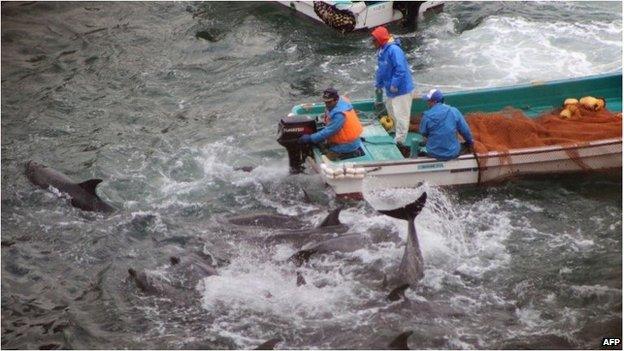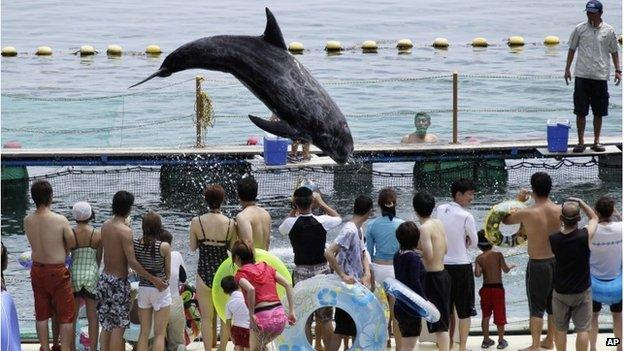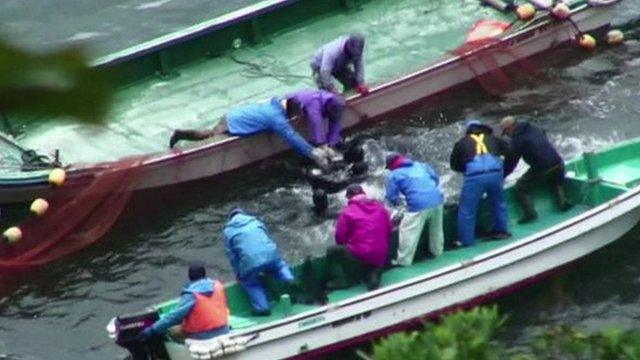Japan aquariums to stop buying Taiji dolphins
- Published

The Taiji hunt has been the source of controversy for many years
Japan's aquariums have voted to stop acquiring dolphins caught during the controversial annual hunt in the town of Taiji.
It comes after the World Association of Zoos and Aquariums (Waza) suspended Japan's membership because of the "cruel" way the dolphins are caught.
The Taiji hunt has been carried out for decades despite widespread criticism.
Hundreds of dolphins and pilot whales are herded into a small bay and either killed for meat or sold to aquariums.
The hunt, which sees the animals killed with knives in shallow waters, gained global attention when it was the subject of the Oscar-winning documentary film The Cove in 2009.
Waza had suspended Japan, external in April, saying all its members were prohibited from using "cruel and non-selective methods of taking animals from the wild".
It said negotiations with Japan on a compromise had failed.

A Jaza official said it took about 20 dolphins each year from the Taiji hunt
The Japanese Association of Zoos and Aquariums (Jaza), which has 152 member sites, said on Wednesday it would now "prohibit its members to acquire wild dolphins caught by drive fishing in Taiji and to take part in their export and sale".
But the group's chair, Kazutoshi Arai, told a news conference that the move was not a criticism of the Taiji "drive fishing" method, nor of whaling culture itself. He said Jaza still believed that the Taiji hunt was "not cruel".
He blamed Waza's decision on "pressure from international anti-whale activist groups".
The move was welcomed by those groups, many of which say that the hunt is largely made economically viable because of the trade to aquariums.
Anti-whaling group Sea Shepherd said it was "great news for the dolphins in Taiji".
"With the elimination of the demand for Taiji dolphins from Japanese aquariums, Taiji's hunt is one huge step closer to being sunk economically," it said in a statement.
Sarah Lucas, head of Australia for Dolphins, said it marked "the beginning of the end for dolphin hunting in Japan".
- Published21 January 2014

- Published24 August 2010